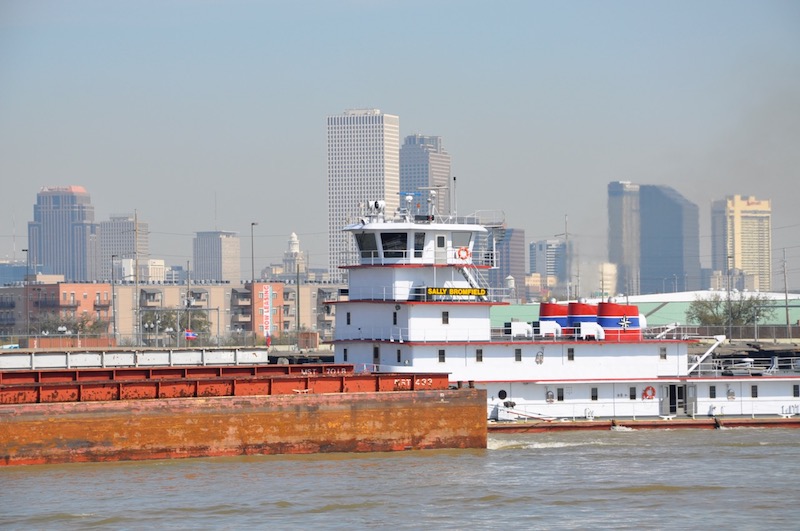"Railroads are taking an ever smaller slice of the overall transportation pie. If this trend is accelerated by autonomous trucking, railroads that go about business as usual will eventually become like barges that ply the Mississippi River. They’ll be quaint and functional but will be left out of the fastest growing areas of the economy.”
This statement from Bill Stephens (“High Hurdles for Short-Haul Intermodal,” Trains magazine, June 2018) offers a different perspective on domestic freight transportation. Railroads, it is argued, are not participating in the rapidly growing freight market that is principally made up of shipments less than 500 miles and in truckload lot sizes, about 20 tons or smaller. Most of the growing domestic freight market is overnight or by next day truck. You might call it the “Amazon freight market — get your freight overnight.”
The implications for the barge sector are clear. Growth in the 1,500-ton barge load bulk commodities market has been low relative to the rest of the intermodal transport sector.
Some of the bulk cargo sectors that traditionally move by rail and barge have seen growth stagnate. Coal immediately comes to mind but the grain sector has also been weak due to strong international competition. Railroads have been able to attract some long haul intermodal freight but this market is limited in size and its profit margins are thin. Long-haul intermodal for the barge sector is mostly nonexistent unless there are special mitigating factors such as overweight containers for truck.
Still the sight of a Lower Mississippi River 35-barge tow is anything but “quaint and functional.” Yes, growth and new barge cargoes and markets seems far removed, but the stuff that is moving on the inland waterways dwarfs other transport sectors in scale and scope.
For years the transport sectors have vied over “inherent advantage” or what the different modes and operations do best from an efficiency perspective. Viewed this way, I will take the quaint functionality of the big Lower Miss tows. The only alternative is unit trains, not trucks, and the more exciting dynamic forms of transportation that are growing.
I am positive that Amazon will not be able to deliver the equivalent of a Lower Miss 50,000-ton bulk cargo barge tow the next day.




